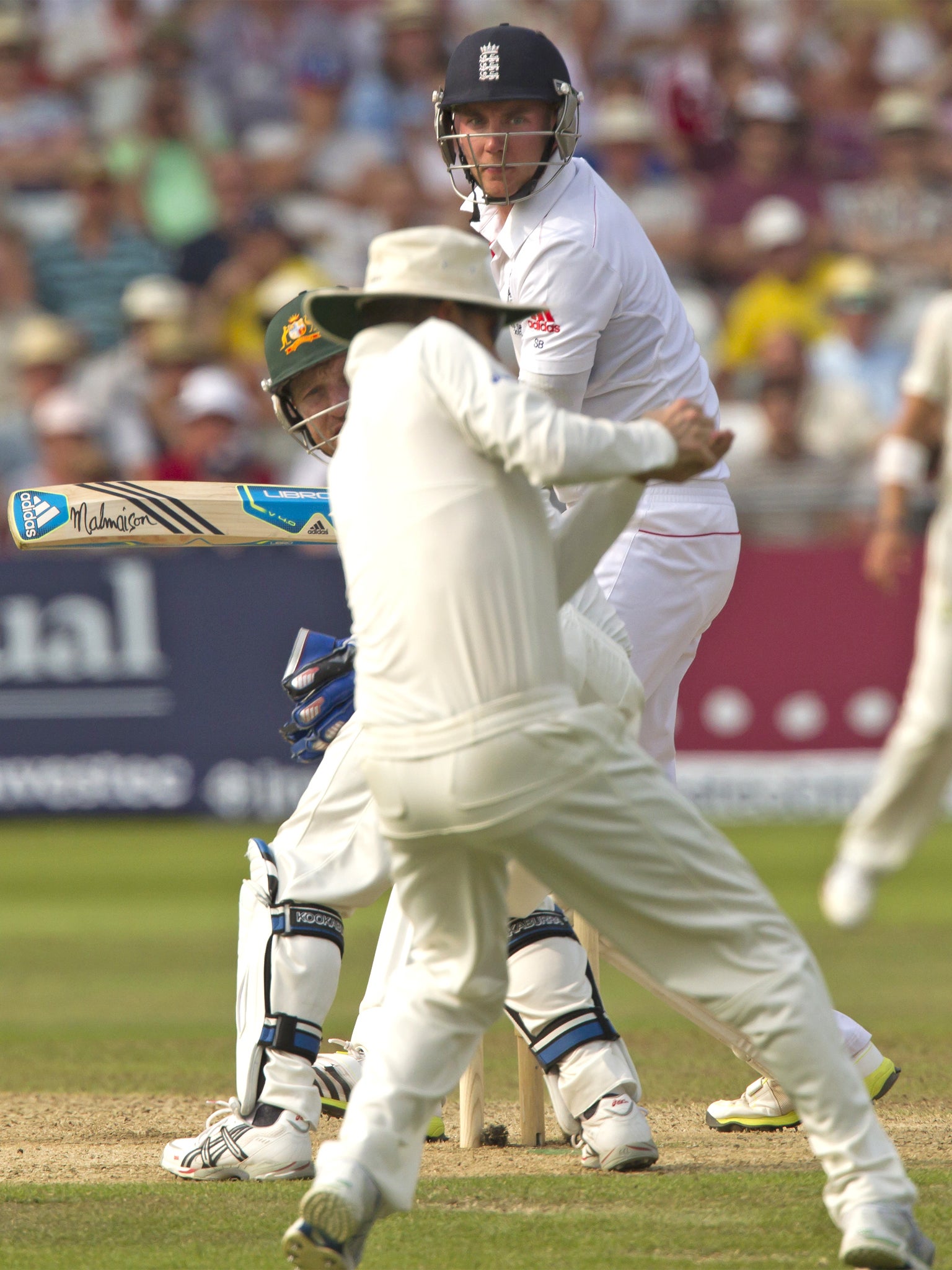Ashes 2013: Controversial umpire decisions of the 2013 series...so far
The on and off-field decisions have been firmly in the headlines throughout the series, so we take a look at the controversy so far

In the wake of Usman Khawaja’s baffling dismissal following an apparently comprehensive review, we take a look at some of the other questionable decisions that have been made in this series.
Jonathon Trott’s dismissal on the second day of the first Test sparked controversy in some areas and downright disbelief in others. Trott was trapped by the first ball he faced, a full-pitching delivery from left-arm fast bowler Mitchell Starc which rattled into his pads, but umpire Aleem Dar wasn’t interested in Australia’s appeals and gave him not out. Unsatisfied, the tourists referred the decision to third umpire Marais Erasmus who contentiously overturned the original call, despite Trott’s adamant protestations that he had hit the ball before it struck his pads, a claim backed-up by the evidence. Close-up video appeared to show a deviation, while the snick-o-meter picked up the faintest of sounds, but it was the absence of the Hot Spot technology which proved decisive – it was being used by broadcasters to analyse the previous dismissal of Joe Root, and is not capable of playing and recording simultaneously, leaving England aggrieved but helpless. Following furious outbursts and accusations of ineptitude, the ICC later issued an apology.
Perhaps the biggest talking point of the series so far came on the third day of the first Test when umpire Aleem Dar somehow missed Stuart Broad’s obvious edge to Michael Clarke at first slip from Ashton Agar’s spin bowling. It was Broad’s refusal to walk that sparked intense debate in the cricketing world, but had the correct decision been made in the first place, this couldn’t have been an issue. The pill was made all the more bitter for the incredulous Aussies as they had already used up all of their reviews, meaning they could not refer the decision, which in turn prompted fresh criticism of the devise Decision Review System (DRS).
Ashton Agar produced a historic innings in the first Test, breaking the record for highest Test score from a number 11 with his incredible knock of 98 and setting a new benchmark for the 10 wicket partnership, reaching 151 with Phil Hughes. But the teenager narrowly avoided a stumping on six, when the narrowest of decisions went in his favour, much to the chagrin of the English. Third umpire Erasmus was called in to study a replay which appeared to show the batsman’s foot on the line at the moment Matt Prior whipped off the bails, but he concluded there was insufficient evidence to give him out. The England players were philosophical in their reaction, but for the fans it was perceived as a gross injustice, not least because Agar’s innings put an Australian victory firmly on the cards.
England’s talisman for the series Ian Bell was involved in a hotly-contested decision on the third day of the second Test as he farmed a short delivery from Ryan Harris to gully where Steve Smith was ready to pounce, diving forward to seize the ball on the bounce. Smith, the Australians and most of the spectators around the world were expecting to see Bell head back to the pavilion, but he stood his ground, prompting the decision to be passed over to third umpire Tony Hill. Replays seemed to show that the ball had indeed carried, and Smith’s catch was sufficient to take the key wicket, but Hill saw the small pocket of doubt and emphasised it, ruling Bell not out. The Australians raged, and an expletive-ridden tweet snuck out from the Australia Cricket Twitter account before being hastily deleted, but they had sympathy from most of the English as well.
Apparently always in the thick of umpiring controversy, Ashton Agar once more had people questioning the officials in the second Test, although this time he was given out. England appealed as a fierce Tim Bresnan delivery flew into Matt Prior’s gloves, convinced there had been an edge, but the umpire was unmoved. Undeterred, a review was made and the spotlight once more turned to third umpire Tony Hill. And once again, his decision prompted a hailstorm of criticism, as he deduced, despite nothing registering on Hot Spot and a sound picked up by the snickometer apparently coming after the ball had passed, that there was sufficient evidence to give the wicket.
Join our commenting forum
Join thought-provoking conversations, follow other Independent readers and see their replies
Comments
Bookmark popover
Removed from bookmarks